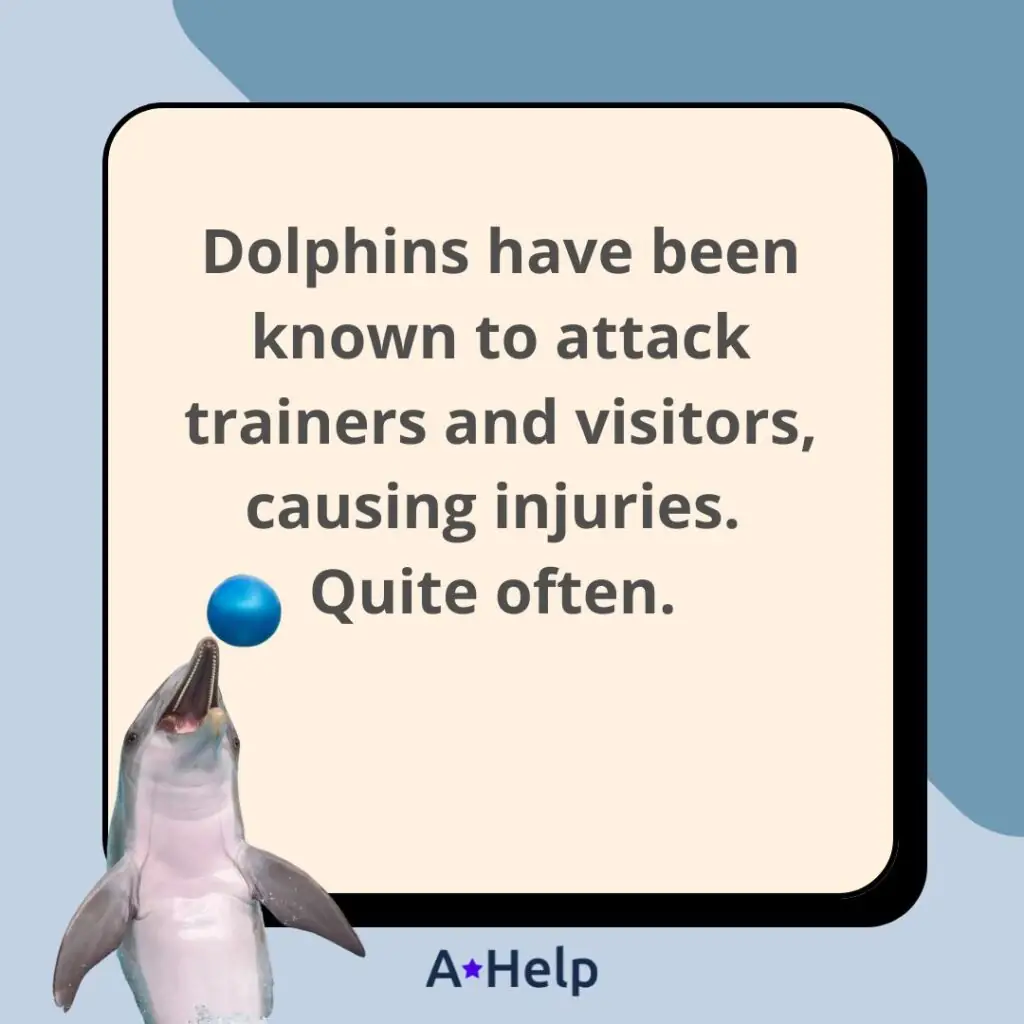☝️ TLDR: Dolphins have a friendly reputation and often help humans, but they are still wild animals with protective instincts who suffer in captivity
Dolphins, unlike orcas, have a friendly reputation as playful sea dwellers, but there’s a dark side to these clever creatures that’s rarely talked about.

✅ AI Essay Writer ✅ AI Detector ✅ Plagchecker ✅ Paraphraser
✅ Summarizer ✅ Citation Generator

While they might look cute, they’re still wild animals with instincts. Are dolphins aggressive at times? They can be! Like any free spirits, dolphins can act out if they feel cornered or stressed — especially when forced into captivity.
A big reason behind this aggression is the impact of aquariums and marine parks. Keeping dolphins in confined spaces can negatively affect their health and behavior. Stress from captivity often leads to anxiety, and in some cases triggers aggressive behaviors. The debate on swimming with dolphins in such settings is ongoing, with advocates pushing for these intelligent animals to remain in their natural habitats instead of performing tricks for entertainment.

Many are surprised to learn that dolphins occasionally show aggression, even to humans. While it’s rare for them to harm us, there are instances where dolphins do display rough behavior. So, do dolphins attack humans? While intentional attacks are rare, their powerful bodies and sharp teeth mean they can unintentionally cause harm, especially if they’re provoked.

There has been recent action to discourage dolphin training as human spectacle. Laws are being pushed in several countries to stop capturing dolphins and keeping them in aquariums, aiming to protect their natural behaviors and health.
📌 Fun Fact: We Tried To Teach Dolphins To Speak
In the 1960s, an unconventional experiment took place at the Dolphin Point Laboratory on Virgin Islands. Led by neuroscientist Dr. John C. Lilly, the project was funded by NASA and the U.S. Navy. Margaret Howe Lovatt worked with a dolphin named Peter in an experiment to teach dolphins human speech. The experiment involved controversial practices, including intimate contact and the use of LSD on dolphins. Ethical concerns eventually ended the project, and Peter later died in captivity, raising further questions about the treatment of animals in scientific research.

But let’s not forget the many stories of the protective and helpful nature of dolphins, even if we should always keep in mind that they are wild animals and such behavior cannot be expected as default.
| 🗓️Date | 🌍Location | 🐬Description |
| 2004 | New Zealand | A pod of dolphins circled around a group of swimmers, protecting them from a great white shark until it left. |
| 1971 | California, USA | A dolphin named “Patches” helped a drowning surfer back to shore by nudging him and swimming alongside him. |
| 2000 | Gulf of Mexico | A dolphin protected a diver from a hammerhead shark by blocking its path and allowing the diver to reach safety. |
| 2013 | Italy | A dolphin led rescuers to a lost snorkeler who had been missing off the coast, allowing the person to be saved. |
| 2007 | Florida, USA | A dolphin helped a boy with Down syndrome who fell off a boat, staying close to him until rescuers arrived. |
Source
FAQ
Follow us on Reddit for more insights and updates.





Comments (0)
Welcome to A*Help comments!
We’re all about debate and discussion at A*Help.
We value the diverse opinions of users, so you may find points of view that you don’t agree with. And that’s cool. However, there are certain things we’re not OK with: attempts to manipulate our data in any way, for example, or the posting of discriminative, offensive, hateful, or disparaging material.